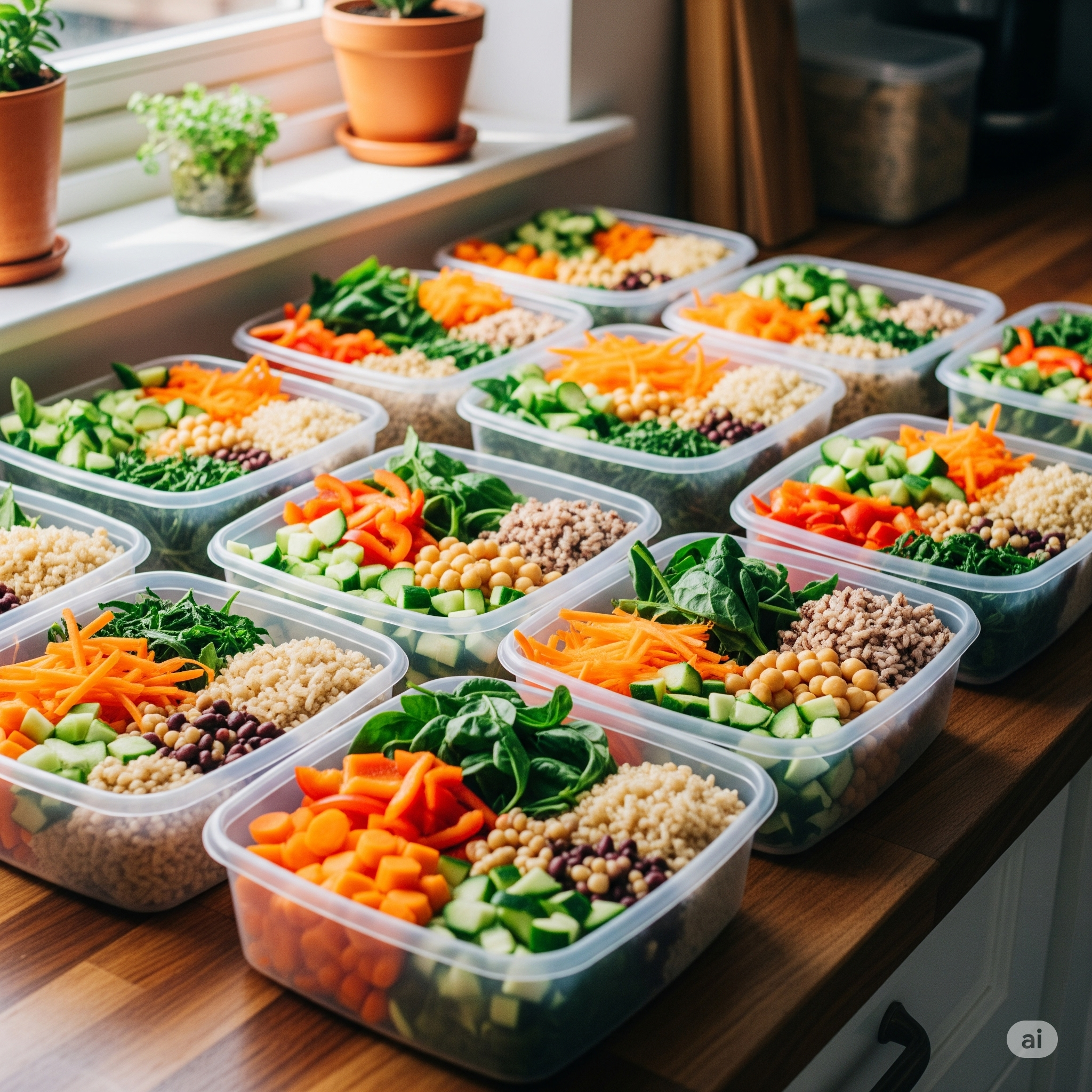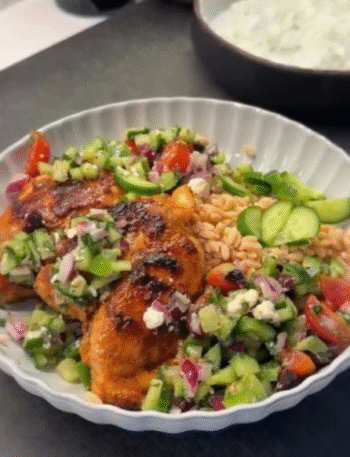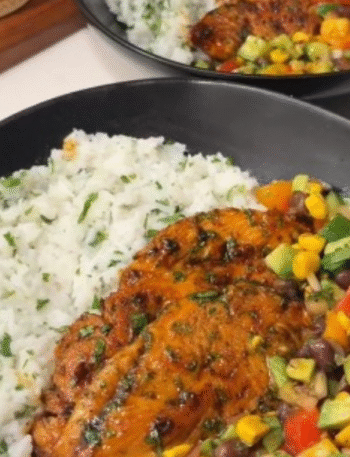The Importance of Meal Prepping
Meal prepping has become an essential practice for those seeking to optimize their time management while adhering to a nutritious diet. The process of planning and preparing meals in advance offers significant advantages that can ease the stress of daily cooking and promote healthier eating habits. One of the primary benefits of meal prepping is the time it saves during a busy week. By dedicating a few hours on the weekend to prepare meals, individuals can eliminate the need to make hasty food choices during the week, which may not always align with their health goals.
Moreover, having meals readily available fosters a sense of control over dietary choices. This accessibility encourages the consumption of balanced, nutritious meals, ultimately contributing to better portion control. When meals are pre-portioned and prepared, individuals are less likely to overeat, as they are not faced with the temptation of emotional or impulse eating, a common occurrence when faced with the convenience of fast food or processed snacks. The visual and tactile rewards of having well-prepared meals can create a sense of accomplishment, enhancing satisfaction with one’s dietary choices.
Additionally, meal prepping can lead to psychological benefits. The anticipation of enjoying a diverse range of healthy dishes offers motivation and encourages adherence to dietary goals. Knowing that nutritious options are conveniently available can reduce anxiety related to meal decisions, allowing individuals to focus on other important aspects of their lives. This routine can cultivate positive eating habits and foster a healthier relationship with food. By embracing meal prepping, individuals can position themselves for success in both their culinary adventures and health journeys, paving the way for lasting changes in lifestyle.
Easy and Nutritious Meal Prep Ideas
Meal prepping is an efficient way to ensure you are eating healthy and saving time throughout the week. By planning your meals in advance, you can create balanced options that are both nutritious and satisfying. One great idea for meal prep is to create grain bowls, which are versatile and can be customized to your taste preferences. Start with a base of whole grains such as quinoa, brown rice, or farro. From there, add a variety of roasted vegetables, such as sweet potatoes, bell peppers, and broccoli, which not only enhance flavor but also add a spectrum of nutrients.
In addition to grains and vegetables, consider incorporating a source of protein like grilled chicken, chickpeas, or tofu. This combination of ingredients contributes to a well-rounded meal that will keep you fueled throughout your busy day. Additionally, dressing your grain bowls with a homemade vinaigrette can elevate the flavor and ensure that your meals don’t become monotonous. Simply mix olive oil, vinegar, mustard, and your choice of herbs for a quick and easy dressing.
Another excellent meal prep option is salads, which can be prepared in bulk and stored in the refrigerator. Start with a base of leafy greens like spinach or kale, and add a mix of toppings. Nuts, seeds, cheese, and various vegetables can be easily added and switched each week. To prevent sogginess, store the dressing separately and add it just before you are ready to eat.
Finally, don’t forget about roasted vegetables. They make a delicious side dish that can complement any meal. A simple blend of seasonal vegetables tossed in olive oil, salt, and pepper can create a colorful medley that can be reheated and served throughout the week. The flexibility of these ingredients allows you to mix and match, making each meal unique and enjoyable.
Storage Solutions for Meal Prep Success
Effective meal prep not only simplifies daily dining but also promotes healthy eating habits. A crucial aspect of meal prep success lies in the storage solutions used to maintain the freshness and quality of prepped meals. Selecting appropriate storage containers is paramount; materials such as glass and BPA-free plastic are commonly favored for their durability and safety. Glass containers, in particular, are ideal for microwave use and do not retain odors, making them a preferable option for many individuals. Additionally, they often come with airtight lids that help keep food fresh longer.
Proper labeling of prepped meals is another essential practice. Each prepared dish should be clearly labeled with the date it was made, ensuring that you can easily track its shelf life. This practice not only helps in managing portion sizes but also reduces food waste by prompting you to consume older meals first. Using a simple sticker system or even a dry-erase marker on the lid can help maintain organization in your refrigerator.
Refrigeration techniques play a vital role in prolonging the life of your meals. It is advisable to store meals in smaller portions, as this not only aids in quick reheating but also minimizes the risk of spoilage. Large bulk containers may encourage individuals to eat more than planned, while smaller portions can help with mindful eating practices. For those keen on sustainability, consider using reusable containers made from eco-friendly materials. This approach not only aids in the preservation of health-conscious meals but also contributes positively to environmental wellbeing.
Incorporating these storage solutions into your meal prep routine can significantly enhance the longevity and quality of your dishes, making healthy eating more accessible throughout the week. By focusing on the right containers, effective labeling, and proper refrigeration methods, you not only streamline mealtime but also keep your culinary creations fresh and enjoyable.
Creating a Weekly Meal Prep Schedule
Establishing a weekly meal prep schedule is essential for anyone aiming to save time in the kitchen while maintaining a healthy diet. To begin, assess your daily routine and identify the best day for meal preparation. For many individuals, weekends are ideal due to reduced commitments; however, you may find that a weekday evening suits you better. Whatever day you choose, consistency is key to making meal prep a habit.
Next, plan your meals around your week. Start by analyzing your calendar to account for any events or obligations that may affect your meals. Consider what meals are most suitable for different days. It can be helpful to prepare meals that can be repurposed throughout the week, such as a large batch of roasted vegetables that can accompany meats, grains, or salad bases on different days. Furthermore, aim for meals that utilize seasonal ingredients, as they typically offer better flavor and nutritional value while being cost-effective.
Integrating a shopping list into your meal prep process is crucial for ensuring you have all the necessary ingredients on hand. Create a comprehensive list based on your meal plan, checking your pantry and refrigerator first to avoid purchasing duplicate items. This step not only saves time but also reduces food waste. As you shop, remain flexible; if you find seasonal produce or sales on certain items, don’t hesitate to adjust your planned meals accordingly. Flexibility in your meal prep is vital—it allows for spontaneity and adaptation based on personal preferences or unexpected changes.
Ultimately, crafting a meal prep schedule that aligns with your lifestyle will promote healthier eating habits and streamline your cooking efforts. By thoughtfully planning your meals, determining the best time for preparation, and maintaining flexibility with ingredients, you establish a sustainable routine that supports your health goals.




